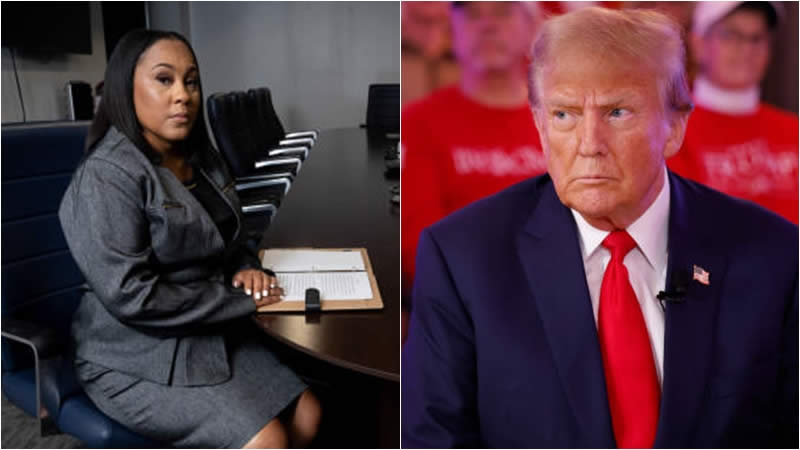In a decisive legal move, Fulton County District Attorney Fani Willis has mounted a strong opposition to an appeal for the reevaluation of Judge Scott McAfee’s ruling regarding an ethics complaint intertwined with the high-profile case against former President Donald Trump, Rudy Giuliani, and several others.
The crux of the appeal from Trump and his co-defendants centers around the desire for the superior court to overturn an indictment and to seek disqualification of District Attorney Willis due to allegations of a personal relationship with a staff member, which they contend could compromise the integrity of the prosecution.
In a detailed 19-page rebuttal filed on Monday, Willis firmly addresses the arguments presented by Trump and his legal team, characterizing their request for a review as a mere expression of dissatisfaction with the trial court’s initial decision. Willis confidently asserts that the trial court’s judgment was founded on a sound application of law to the presented facts, thereby standing firm on the original ruling.
Within her motion, Willis meticulously dismantles the arguments posited by the defendants, underscoring that the trial court detected no tangible prejudice against the defendants’ case, nor any infringement upon their due process rights. This point is pivotal, as it directly challenges the defendants’ insinuations of bias or misconduct on the part of the District Attorney due to the alleged personal relationship.
“But the trial court went even a step further, finding that it could not determine, based on the evidence, when the relationship between the District Attorney and Wade evolved into a romantic one…. Even assuming … that Wade’s continued involvement in the prosecution would have produced an appearance of impropriety, the trial court allowed for his withdrawal… This Court has sanctioned this same remedy as a cure for the potential appearance of impropriety.”
“Setting aside whether Wade’s removal from the case was, in fact, necessary, he withdrew from representation hours after the trial court issued its order, and the District Attorney accepted the resignation… Accordingly, the trial court properly exercised its discretion and inherent authority in denying the motion to disqualify based on the appearance of impropriety, and there is no basis to grant interlocutory review on this ground,” Willis wrote.
Moreover, Willis tackles the notion of forensic misconduct head-on, arguing that the public statements made by her office do not rise to the level of misconduct that would necessitate her disqualification from the case. This stance seeks to clarify the boundaries between permissible legal commentary and actions that would genuinely prejudice a case.
In a critical examination of the defendant’s allegations of prosecutorial misconduct, Willis points out that the trial court found no substantial evidence to suggest that her relationship with former special prosecutor Nathan Wade had any material impact on the proceedings or the case at hand. This aspect of her motion aims to dispel any notions of undue influence or bias stemming from personal connections within the prosecution team.
Willis’s motion concludes with a robust call for the Court to deny the application for interlocutory review, given the defendants’ failure to convincingly demonstrate that the trial court’s ruling was flawed or unjust. This assertion not only reaffirms the initial judgment but also emphasizes the high burden of proof required to overturn such decisions, told CBC News.
This legal tussle comes in the wake of Trump’s request last month for the Georgia Court of Appeals to undertake a review of the case, marking yet another chapter in the ongoing legal saga surrounding the former president and his associates. As the case continues to unfold, Willis’s motion represents a significant assertion of the legitimacy of the prosecution’s position and the foundational principles guiding the judicial process.

